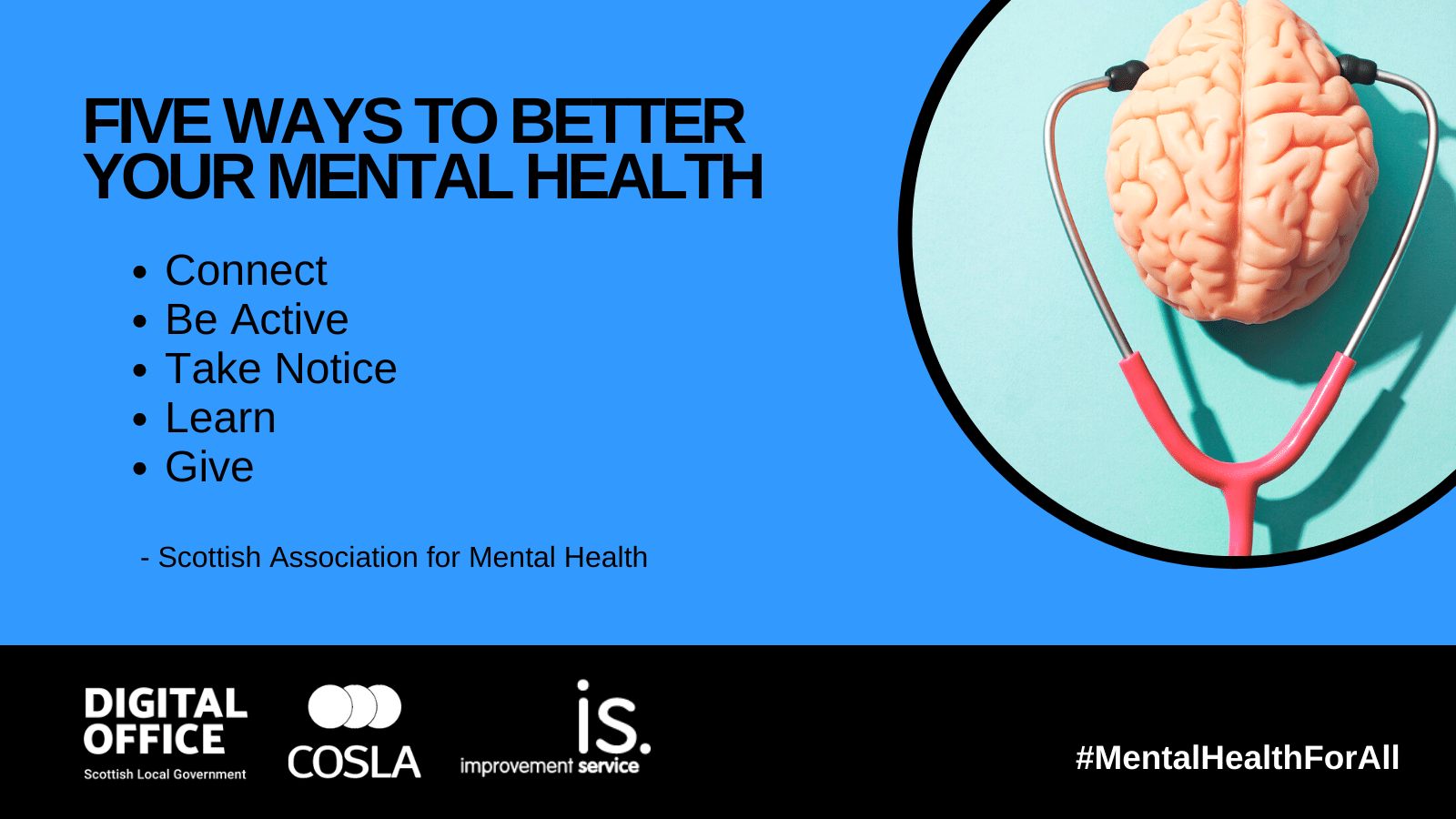
In recent years, the discourse surrounding mental health has undergone a dramatic transformation, particularly among younger generations. There has been a discernible shift towards enhanced transparency and acceptance, a willingness to engage in discussions about struggles that were once relegated to hushed whispers or concealed entirely. This evolving terrain is significantly shaped by public figures who are courageously coming forward to share their personal experiences, thereby diminishing the stigma and reassuring others that they are not alone.
Millennials, for instance, have been identified as more inclined to discuss mental health and to exhibit acceptance towards those grappling with it, in comparison to their parents or grandparents. This openness has garnered public attention, as prominent figures in pop culture have spoken candidly about their own experiences. From navigating the immense pressures of fame from a tender age to managing profoundly personal battles with depression, anxiety, or addiction, these voices provide invaluable insights into the reality of living with mental health challenges.
Their frankness offers relatable examples and reinforces the notion that mental health is of equal importance to physical health. By leveraging their platforms to discuss these issues, they contribute to the normalization of seeking assistance, whether through therapy, medication, or recovery programs, thereby paving the way for a more compassionate and understanding society. Here, we examine the journeys of several such individuals, drawing directly from their own words as shared in the public domain through interviews, documentaries, and social media.

1. **Billie Eilish** Since making her debut in 2017, Billie Eilish has established herself as a staunch advocate for mental health. In addition to exploring her internal conflicts through her music, the experimental pop artist has also exhibited remarkable candor in interviews, discussing her battles with depression, body dysmorphia, and other related issues. Her transparency has resonated deeply with many individuals, as she articulates emotions that are often challenging to express.
Since making her debut in 2017, Billie Eilish has established herself as a staunch advocate for mental health. In addition to exploring her internal conflicts through her music, the experimental pop artist has also exhibited remarkable candor in interviews, discussing her battles with depression, body dysmorphia, and other related issues. Her transparency has resonated deeply with many individuals, as she articulates emotions that are often challenging to express.
“Depression has, to a certain extent, dominated every aspect of my life,” she conveyed to Zane Lowe during an interview on Apple Music’s Beats 1. “Throughout my entire life, I have consistently been a melancholic individual.” This sentiment is mirrored in a significant portion of her artistic works, most notably in her song “What Was I Made For,” which she composed with her brother Finneas O’Connell for the Barbie movie. Her music serves as a potent conduit for these emotions.
As she matures, Eilish continues to grapple with a pervasive sense of melancholy, as well as the more shadowy aspects of fame. When questioned about the relentless exposure in a recent interview with Allure, Eilish offered a typically candid response. “I am beginning to improve, but to be candid, I have not been faring well for some time. I experience feelings of impending doom for the majority of the day. When I dwell excessively on the fact that I can never regain my privacy, it is sufficient to drive one to consider extreme actions. However, one must learn to let go.” This underscores the continuous endeavor of managing mental well-being amidst intense public scrutiny.
Read more about: Taylor Swift Dazzles in Vivienne Westwood: A Glamorous Tribute at the 2025 Grammys

2. **Selena Gomez** Selena Gomez has devoted a substantial portion of her career to addressing the issue of mental health—from openly discussing her personal struggles, to raising funds for the cause, to establishing entire brands dedicated to mental health maintenance. Over the years, Gomez has been remarkably transparent about her own mental health journey and has endeavored to assist others facing similar challenges in finding support. Her commitment transcends personal involvement and extends to the creation of resources for others.
Selena Gomez has devoted a substantial portion of her career to addressing the issue of mental health—from openly discussing her personal struggles, to raising funds for the cause, to establishing entire brands dedicated to mental health maintenance. Over the years, Gomez has been remarkably transparent about her own mental health journey and has endeavored to assist others facing similar challenges in finding support. Her commitment transcends personal involvement and extends to the creation of resources for others.
In 2021, Gomez co-founded Wondermind, a platform designed to cultivate a sense of community and to offer education and resources pertaining to mental health. Additionally, her Rare Impact Fund aims to raise in excess of $100 million over the next decade to benefit mental health services and education. These initiatives underscore her dedication to effecting a tangible change in the mental health landscape.
With the release of her 2022 documentary, Selena Gomez: My Mind and Me, Gomez made it unequivocal that her commitment to this cause—both personal and global—is wholehearted, authentic, and ongoing. Her willingness to document her own journey in such a public manner highlights the profound depth of her passion. “I do not consistently feel well,” Gomez recently informed Vogue—although spending time with her 10-year-old sister, Gracie Elliott, provides solace. “She reminds me of a perspective in life that can be more straightforward and pure. Even a brief moment with her makes me feel better.” This illustrates the significance of simple joys and supportive relationships in navigating challenging periods.
Read more about: Hailey Bieber’s Adorable Mom Ring Is $2000, But I Found Some Lookalikes Under $8!

3. **Cara Delevingne** In Vogue’s April cover feature, Cara Delevingne candidly discussed her mental health, her family, and her path to sobriety. She has attained sobriety with the assistance of the 12-step program and therapeutic interventions. Delevingne’s narrative underscores how early-life experiences can influence an individual’s mental health trajectory.
In Vogue’s April cover feature, Cara Delevingne candidly discussed her mental health, her family, and her path to sobriety. She has attained sobriety with the assistance of the 12-step program and therapeutic interventions. Delevingne’s narrative underscores how early-life experiences can influence an individual’s mental health trajectory.
Delevingne commenced experimenting with substances during her childhood, encountering mental health challenges and initiating various therapeutic treatments at the age of 10. She commenced taking antidepressants at 15 following an emotional breakdown. “This was not merely a chemical imbalance but rather a comprehensive trauma response,” she stated, adding that the medication “saved my life.” This elucidates the intricate interplay between biological factors and life experiences.
Delevingne further disclosed that during the pandemic, she experienced what she refers to as an existential crisis—a period of depression that led her to relapse into detrimental habits. She ultimately sought assistance in late 2022, demonstrating that seeking help is indicative of strength, not weakness. “I simply required support. I needed to commence reaching out. And my long-standing friends, whom I have known since I was 13, all visited me, and we began to cry. They looked at me and said, ‘You deserve an opportunity to experience joy.’ ” This poignant moment emphasizes the significance of connection and the belief of loved ones during the recovery process.
Read more about: From Red Carpet Glam to Airport Chic: How Celebs Are Redefining Effortless Style (And How You Can Too)

4. **Simone Biles** Simone Biles garnered widespread media attention when she opted to withdraw from the 2020 Tokyo Olympics midway through the competition, citing concerns regarding her mental health. Her decision propelled the discourse on prioritizing mental well-being to the forefront of global sports, challenging the conventional narrative of persevering through pain at any cost. It served as a potent illustration of heeding one’s physical and mental cues.
Simone Biles garnered widespread media attention when she opted to withdraw from the 2020 Tokyo Olympics midway through the competition, citing concerns regarding her mental health. Her decision propelled the discourse on prioritizing mental well-being to the forefront of global sports, challenging the conventional narrative of persevering through pain at any cost. It served as a potent illustration of heeding one’s physical and mental cues.
“I advocate placing mental health as a priority,” she remarked at a 2021 news conference. “Because if you neglect it, you will not derive enjoyment from your sport, nor will you achieve the level of success you aspire to.” This candid declaration provided a cogent rationale for her decision, underscoring that athletic performance is intrinsically tied to one’s psychological state.
Biles further elaborated, “Thus, it is acceptable on occasion to even forgo participation in major competitions to concentrate on self-care, as this demonstrates your true strength as both a competitor and an individual—rather than merely struggling through adversity.” Her actions and statements conveyed a crucial message: that taking a pause for mental health is not indicative of weakness but rather an embodiment of strength and self-preservation, particularly when confronted with immense pressure.
Read more about: Hezly Rivera’s Bittersweet Olympic Journey: From Underdog to Gold Medalist on the Sidelines

5. **Sophie Turner** Also impacted by the “Game of Thrones” craze was Williams’s co-star, Sophie Turner. On Dr. Phil’s podcast series, the actress delved into her experiences of living with depression, as well as the profound influence negative social media commentary has had on her in the past. Having entered the public eye at a young age, she was subjected to public scrutiny during her formative years.
Also impacted by the “Game of Thrones” craze was Williams’s co-star, Sophie Turner. On Dr. Phil’s podcast series, the actress delved into her experiences of living with depression, as well as the profound influence negative social media commentary has had on her in the past. Having entered the public eye at a young age, she was subjected to public scrutiny during her formative years.
It was during Turner’s puberty that she began to take negative feedback on social media to heart. “It was primarily a plethora of comments about my weight,” she stated. “Or I would have acne-prone skin because I was a teenager, which is normal, and I used to receive numerous comments regarding my skin, my weight, and my acting abilities.” This underscores the detrimental impact online harassment can have on self-esteem, especially among young individuals.
At one juncture, Turner mentioned that she had struggled to get out of bed and had even contemplated suicide at one point. This reveals the severe extent of her battle with depression. “I don’t believe I considered myself deserving of anything I was achieving,” she confessed. Turner has acknowledged that medication and therapy have been instrumental in aiding her, demonstrating that professional assistance can be vital in managing severe mental health challenges.
Read more about: Scandalous Socks and Sandals: Celebrity Looks That Shocked Us All

6. **Lili Reinhart** Lili Reinhart has illuminated her battle with anxiety and depression, while underscoring that therapy constitutes an invaluable resource. Leveraging her platform, the star of “Riverdale” has emerged as a vocal proponent of destigmatizing mental health treatment and encouraging others to seek assistance when necessary. Her forthright approach is intended to dismantle barriers.
Lili Reinhart has illuminated her battle with anxiety and depression, while underscoring that therapy constitutes an invaluable resource. Leveraging her platform, the star of “Riverdale” has emerged as a vocal proponent of destigmatizing mental health treatment and encouraging others to seek assistance when necessary. Her forthright approach is intended to dismantle barriers.
“A friendly reminder for anyone who needs to hear it: Therapy should never be a source of shame,” Reinhart penned in a series of posts on Instagram Stories. “Everyone stands to benefit from consulting a therapist. It makes no difference how old you are or how ‘proud’ you are attempting to be.” This emphatic statement directly confronts the shame and pride that can deter individuals from seeking help, reinforcing the notion that therapy is a universal resource.
Focusing intently on the stigma associated with therapy, the actress is utilizing her platform to reshape the narrative. “We are all human, and we all grapple with challenges,” she continued. “Do not suffer in silence. Do not hesitate to ask for help.” Her message is one of solidarity and empowerment, urging others to engage with professionals and support systems rather than enduring their struggles in isolation. By sharing her personal experiences, she renders the idea of seeking therapy more accessible and less intimidating for her audience.
Beyond individual mental health challenges, the discourse often delves into the intricate interplay of co – occurring disorders, wherein addiction and mental health conditions coexist simultaneously. This is a prevalent reality for many, and navigating these intertwined struggles can be particularly arduous, sometimes exacerbated by the intense pressures of public life. The interaction between substance use and mental health is of paramount importance; drugs and alcohol can significantly exacerbate symptoms such as depression, mania, anxiety, and paranoia.
Grasping these complexities is of vital significance, not only for those directly impacted but also for fostering a more empathetic society. Public figures who openly discuss their experiences with both addiction and mental health disorders assume a pivotal role in educating others and alleviating the profound stigma that often envelops these conditions. Their narratives underscore the arduous journey to recovery, the importance of professional assistance, and the resilience required to manage long – term well – being.

7. **Britney Spears** The journey of Britney Spears has constituted a topic of extensive public discourse, and her experiences with mental health have been an integral part of this narrative. Reports suggest that the singer has pursued treatment on multiple occasions over the years for her mental health issues. While details are frequently disclosed publicly, her situation underscores the challenges individuals confront when grappling with mental health conditions under intense public scrutiny.
The journey of Britney Spears has constituted a topic of extensive public discourse, and her experiences with mental health have been an integral part of this narrative. Reports suggest that the singer has pursued treatment on multiple occasions over the years for her mental health issues. While details are frequently disclosed publicly, her situation underscores the challenges individuals confront when grappling with mental health conditions under intense public scrutiny.
It has been documented that Spears acknowledged being diagnosed with bipolar disorder and having suffered from postpartum depression in the past. These diagnoses indicate the substantial mental health obstacles she has traversed. The context also highlights that drugs and alcohol can exacerbate the symptoms of certain mental health disorders, and Spears has admitted to excessive alcohol consumption, “experimenting” with drugs, and being a “marijuana user”.
Her narrative illustrates how the presence of substance use can complicate the management of mental health conditions such as bipolar disorder and depression. It serves as a public exemplar of the necessity for comprehensive support when individuals encounter these intertwined issues, particularly within the demanding and often isolating milieu of fame.
Read more about: Blake Lively Blooms on the Red Carpet: Inside Her Stunning Floral Fashion Tour for ‘It Ends With Us’

8. **Demi Lovato** Demi Lovato, another artist who ascended to prominence at a tender age, has exhibited remarkable openness regarding her struggles with substance abuse and mental health. Her trajectory has encompassed substantial public challenges, including an overdose in 2018 that necessitated life – saving intervention. This incident brought the gravity of her battles with addiction into sharp relief.
Demi Lovato, another artist who ascended to prominence at a tender age, has exhibited remarkable openness regarding her struggles with substance abuse and mental health. Her trajectory has encompassed substantial public challenges, including an overdose in 2018 that necessitated life – saving intervention. This incident brought the gravity of her battles with addiction into sharp relief.
Lovato has consistently been forthright about how addiction has influenced her life, particularly in connection with her bipolar disorder and disordered eating. She has disclosed her recovery journey to her fans, acknowledging that relapse has been an integral part of her path. Her readiness to share even the arduous moments, such as relapsing after years of sobriety, manifests immense courage and an unwavering commitment to authenticity.
Reflecting on her experience, Lovato stated, “What I’ve learned is that this illness is not something that disappears or fades with time. It is something I must continue to overcome and have not accomplished yet. I want to express my gratitude to God for keeping me alive and well.” This potent statement, shared on Instagram in 2018, epitomizes the ongoing nature of recovery and the profound appreciation for survival, delivering a resonant message to others confronting similar challenges.
Read more about: Snap Like a Star: Your Ultimate Guide to Celebrity-Level Selfies

9. **Russell Brand** Russell Brand, the British comedian and actor, has emerged as a vocal proponent for recovery, drawing upon his personal history of combating addiction and mental health challenges. His struggles commenced at an early stage, with reports revealing that he initiated drug and alcohol use during his teenage years. In addition to substance use, he also received treatment for depression and encountered issues related to compulsive overeating.
Russell Brand, the British comedian and actor, has emerged as a vocal proponent for recovery, drawing upon his personal history of combating addiction and mental health challenges. His struggles commenced at an early stage, with reports revealing that he initiated drug and alcohol use during his teenage years. In addition to substance use, he also received treatment for depression and encountered issues related to compulsive overeating.
Brand has been diagnosed with both bipolar disorder and ADHD, underscoring the frequent co – occurrence of mood disorders and attention – deficit disorders alongside substance use. His journey towards recovery commenced in 2002, signifying a pivotal turning point in his life. Since attaining sobriety, he has extensively utilized his platform to enhance awareness and provide support for others.
His advocacy efforts encompass fundraising for drug treatment programs and advocating for improved mental health resources. He also expounded his insights and experiences in his 2017 book, Recovery: Freedom From Our Addictions. Within it, he contemplates the pervasive nature of addictive behaviors, stating, “If you’re addicted to bad relationships, bad food, abusive bosses, conflict, or pornography, it can take a lifetime to spot the problem, and apparently a lifetime is all we have.” This comprehensive perspective on addiction highlights the numerous forms it can assume beyond substances.
Read more about: Launching Your Airbnb: Essential Advice for Beginner Hosts from Real Experiences and Key Insights

10. **Jean-Claude Van Damme** Action star Jean-Claude Van Damme’s life also exemplifies the challenging convergence of substance abuse and mental health. Prior to receiving a diagnosis of rapid – cycling bipolar disorder, he was reportedly grappling with an addiction to cocaine and alcohol. These struggles precipitated public incidents, including an arrest for drunk driving and an accusation of domestic violence, thereby demonstrating the destructive ramifications of untreated co – occurring conditions.
Action star Jean-Claude Van Damme’s life also exemplifies the challenging convergence of substance abuse and mental health. Prior to receiving a diagnosis of rapid – cycling bipolar disorder, he was reportedly grappling with an addiction to cocaine and alcohol. These struggles precipitated public incidents, including an arrest for drunk driving and an accusation of domestic violence, thereby demonstrating the destructive ramifications of untreated co – occurring conditions.
Rapid – cycling bipolar disorder is a specific subtype characterized by frequent and distinct mood episodes, encompassing extreme highs and lows. The context elucidates that substance abuse, particularly involving stimulants such as cocaine, can substantially exacerbate the symptoms of bipolar disorder. This underscores the vicious cycle that can ensue when these conditions interact with each other.
Van Damme’s trajectory took a positive turn following his diagnosis of bipolar disorder and the initiation of proper mental health treatment, specifically noting the utilization of Lithium. He attributes this treatment to assisting him in achieving stability and transforming his life. His experience stands as a testament to the potential for recovery and an enhanced quality of life when mental health conditions, especially those co – occurring with addiction, are accurately diagnosed and effectively managed.

11. **Kurt Cobain** The life and tragic demise of Nirvana’s lead vocalist Kurt Cobain continue to serve as a poignant illustration of the catastrophic impact of untreated mental health and substance abuse problems. Reports reveal that during his childhood, Cobain was diagnosed with attention deficit disorder (ADD) and bipolar disorder, and his family medical history encompassed suicide, indicating potential genetic propensities towards mental health disorders.
The life and tragic demise of Nirvana’s lead vocalist Kurt Cobain continue to serve as a poignant illustration of the catastrophic impact of untreated mental health and substance abuse problems. Reports reveal that during his childhood, Cobain was diagnosed with attention deficit disorder (ADD) and bipolar disorder, and his family medical history encompassed suicide, indicating potential genetic propensities towards mental health disorders.
Throughout his lifetime, Cobain grappled considerably with severe depression. In addition to his mental health afflictions, he and his spouse, Courtney Love, were reported to have abused drugs such as heroin, cocaine, and pills. This concurrent struggle with mood disorders and substance addiction generated a difficult and unstable circumstance. Regrettably, the singer never pursued formal therapeutic interventions for these problems.
Cobain took his own life in 1994 at the age of 27. His narrative stands as a stark admonition of the paramount significance of addressing both mental health conditions and substance abuse simultaneously and the potentially lethal repercussions when these intricate issues remain untreated.
Read more about: The Solved Mystery of the World’s Loneliest House on Iceland’s Remote Elliðaey Island

12. **Carrie Fisher** Carrie Fisher, globally acclaimed for her emblematic role as Princess Leia, served as a potent and influential voice in the discourse on addiction and mental health. She openly acknowledged grappling with drug and alcohol addiction for an extended period. Her path to recovery initially encompassed attaining sobriety at the age of 29.
Carrie Fisher, globally acclaimed for her emblematic role as Princess Leia, served as a potent and influential voice in the discourse on addiction and mental health. She openly acknowledged grappling with drug and alcohol addiction for an extended period. Her path to recovery initially encompassed attaining sobriety at the age of 29.
One year after achieving sobriety, Fisher was diagnosed with bipolar disorder. The relevant literature indicates that medical professionals frequently delay formal diagnosis of a mental health disorder until an individual is sober, as substance use can obscure or mimic symptoms. Fisher emerged as a prolific writer and comedian, often integrating her experiences with addiction and bipolar disorder into her works, employing humor and candor to dismantle stigma.
Fisher passed away in 2016. The coroner’s report revealed the presence of multiple substances in her system, although the cause of death was not definitively attributed to them. Her daughter, Billie Lourd, subsequently shared a poignant message, stating, “My mother contended with drug addiction and mental illness throughout her life. Ultimately, she succumbed to them. She was deliberately candid in all her works regarding the social stigmas surrounding these diseases… I know my mother; she would have wanted her death to encourage people to be open about their struggles.” Fisher’s legacy is characterized by courage and advocacy, paving the way for others to speak more openly about their own challenges.
Comprehending the neurobiological foundations of psychiatric disorders, including those frequently co – occurring with addiction, constitutes another vital element in enhancing diagnosis and treatment. Scientists are diligently endeavoring to construct a more comprehensive portrait of these complex conditions, akin to creating a periodic table for psychiatric disorders.
This pioneering approach, currently under development by scientists at Stanford Medicine, aims to provide a profound understanding of psychiatric conditions and pave the way for more targeted therapies. Their methodology involves integrating two extensive, publicly accessible databases. One database identifies genes associated with psychiatric disorders through large – scale studies, while the other maps the cells in specific brain regions that actively utilize these genes. By amalgamating this information, researchers can pinpoint specific cell types in certain brain areas that are likely implicated in the pathology of disorders such as schizophrenia.
This innovative combinatorial method, utilizing solely human data, corroborates many findings from previous research techniques like imaging and post – mortem tissue analysis, which have observed structural or functional disparities in the brains of individuals with schizophrenia. It has highlighted regions and cell types suspected to be involved in the illness. Importantly, it has also identified brain – cell types in key structures that appear to be common across various psychiatric disorders, suggesting shared biological pathways that could be targeted by future treatments.
The research initially focused on schizophrenia due to its substantial genetic component and its impact on approximately 0.5% of the global population. Schizophrenia is a severe disorder characterized by symptoms such as hallucinations and delusions, often causing profound difficulties in daily life. By identifying specific cell types involved, researchers gain insights into how these cells normally function, their locations, and how their dysfunction might contribute to the disorder. This knowledge can potentially guide the development of new drug targets, focusing on the receptors or pathways specific to these implicated cells. While the brain is notoriously challenging to study directly in living individuals, this non – invasive computational method offers a powerful new tool for uncovering the biological roots of these enigmatic conditions. Understanding which precise cell types contribute to disorders is a crucial step forward in developing effective treatments.
Read more about: A Summer of Plants and Patio: Lowe’s vs. Home Depot Showdown
The journey toward enhanced mental well – being is multifaceted, encompassing personal courage, the pursuit of professional assistance, community support, and the unremitting efforts of researchers in elucidating the biological complexities of the brain. As an increasing number of individuals, including public figures, share their narratives, the stigma associated with mental health issues diminishes, thereby encouraging others to seek the help they require. Concurrently, scientific progress is offering clearer insights into the underlying causes of these disorders, paving the way for more precise and efficacious interventions. The path ahead entails both empathy and innovation, working in tandem to construct a future where mental health is comprehended, supported, and treated with the same urgency as physical health, enabling individuals to attain peace, stability, and joy in their lives.



